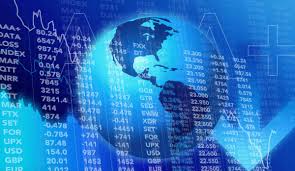Asian stocks climb after volatile trade on U.S.

Asian equity markets bounced on Tuesday after U.S. President Donald Trump said the U.S.-China trade pact was “fully intact”, clarifying earlier confusing statements from the White House over the fate of the deal.
MSCI’s broadest index of Asia Pacific shares outside of Japan rose 0.72% to 517.1 points after earlier going as low as 509.9. Chinese shares regained lost ground too, with the blue-chip index last up 0.38%.
Jitters emerged early in the Asian day after White House trade adviser Peter Navarro said the trade deal with China was “over”, linking the breakdown in part to Washington’s anger over Beijing not sounding the alarm earlier about the coronavirus outbreak.
The statement prompted a selloff across equities markets but sentiment quickly recovered when Navarro, an outspoken critic of China, said his remarks had been taken out of context.
Trump also soothed nerves when he tweeted: “China trade deal is fully intact. Hopefully they will continue to live up to the terms of the agreement.”
In Hong Kong, the Hang Seng rose about 1% in early afternoon trade, South Korea’s KOSPI index added 0.54% and Japan’s Nikkei jumped 0.8%.
Asian stocks have rallied hard since hitting a low in March amid worries about the jolt to the global economy from the coronavirus-driven shutdown.
Ord Minnett investment advisor John Milroy said equity market sentiment was positive despite ongoing bursts of volatility across regional markets.
“It’s worth nothing our clients here have been net buyers since the depths of market despair,” Milroy told Reuters from Sydney.
“I should think any pullback would be a catalyst for that pattern to resume, the conversations that I am having with clients is all about what to buy not what to sell.”
Safe-haven gold, which initially rose on Navarro’s remarks, sold off on the clarification, while risk sensitive currencies staged a recovery.
“The saving grace for markets is liquidity, which is in abundance and will offer a backstop as the bulls and bears stage a tussle and cause market volatility,” said Vasu Menon, Singapore-based senior investment strategist at OCBC Bank Wealth Management.
Menon expects U.S.-China tensions to escalate in the run-up to the U.S. elections.
“So expect markets to be very bumpy in second half of this year because of the double whammy from COVID-19 and U.S.-China tensions.”
China on Tuesday reported 22 new coronavirus cases, of which 13 were located in the capital, and the city’s government has started to restrict people from moving to help contain the outbreak.
New infections have spiked in Latin America, Brazil in particular, while New York City, the epicentre of the U.S. outbreak, eased restrictions after 100 days of lockdown.
In the Asian afternoon trading session, the safe-haven yen slipped against the dollar to 107.13, while the euro was a shade higher at $1.1266.
The risk sensitive Australian dollar was up 0.1% at $0.6910. Its kiwi counterpart was marginally weaker at $0.6472.
In commodities, U.S. crude fell 0.22%, or 13 cents, to $40.64 a barrel, while Brent was down 13 cents at $43.07.
As investors piled on equities, spot gold was relatively flat at $1,754.52 an ounce after trading down by up to 0.2%.





